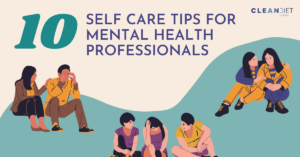Moving forward doesn’t mean leaving the past behind—it means figuring out how to make sense of it in the present.
We’re a few weeks towards the end of 2021 and a lot has changed and happened during this year – some memories make us feel elated with joy and some bring us pain and sadness. As we prepare to welcome 2022, I wish to all of my readers that next year would enable us to make a fresh start.
Moving ahead, on the other hand, does not imply abandoning the past; rather, it entails finding out how to make meaning of it in the present. I’d like to offer some of the advice I’ve provided to readers and customers who are suffering from regret in this post. One recurring motif emerges: don’t run away from your suffering; instead, go toward it.
This isn’t to mean you should continue to punish yourself by dwelling on your mistakes. However, you must address it. I give instruction on what a sincere apology looks like for individuals who have wounded someone dear to them—a rare and amazing sight:
Begin by expressing real regret. A genuine apology is honest, compassionate, and focused solely on the person who receives it.
“I owe you an apology, and I wish I had offered it much sooner,” a letter in this vein would begin. I’m aware that I’ve caused you much pain, and I apologize profusely. I’d want to learn more about your experience because I’ve realized that I neglected to see that I caused you a lot of anguish previously. You may be so upset and distrustful of me that you refuse to communicate with me, but I want you to know that I adore you and am dedicated to truly listening to and hearing you in the manner I should have done years ago.
One suggestion I have is that we talk about some of this with a therapist of your choosing, at least at first. Of course, I adore and miss you, but I also want to be respectful of your decision. I’m hoping you’ll be willing to chat with me about this at some time. Whatever you decide, I want you to know that I’m beginning to understand my part in your suffering and am deeply sorry.”
However, sometimes we have regrets that cannot be resolved by outreach or atonement, or our remorse is for the harm we have caused ourselves. I recommend readers in similar situations to seek to understand their sorrow and then utilize what they learn to be better—better to people around them and better to themselves. —–
“The good news is that this letter is the key you’ve been holding,” Make good use of it to set yourself free.”






